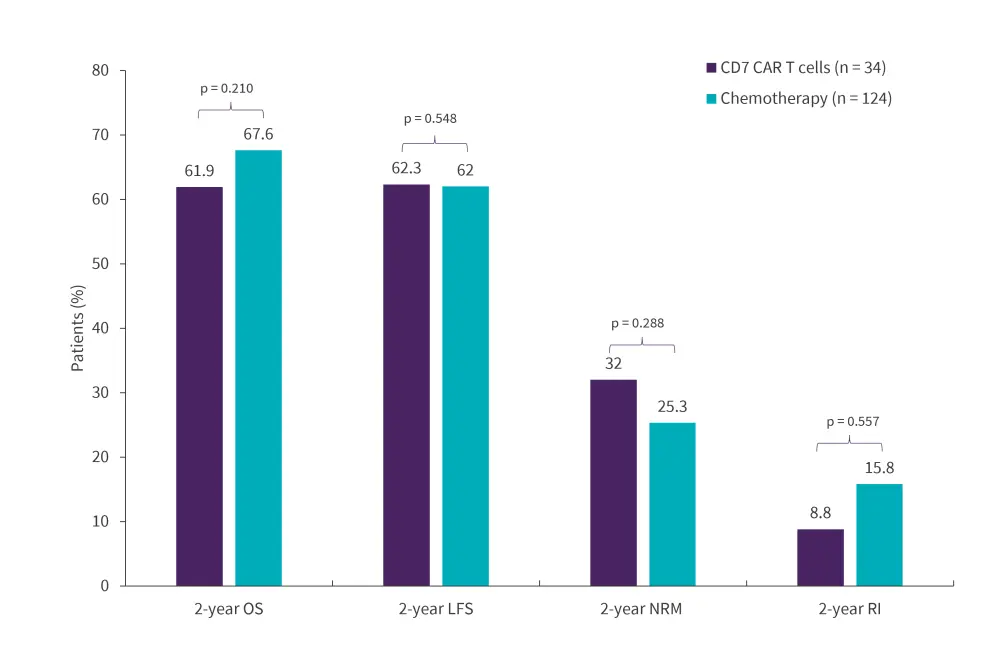All content on this site is intended for healthcare professionals only. By acknowledging this message and accessing the information on this website you are confirming that you are a Healthcare Professional. If you are a patient or carer, please visit Know ALL.
The all Hub website uses a third-party service provided by Google that dynamically translates web content. Translations are machine generated, so may not be an exact or complete translation, and the all Hub cannot guarantee the accuracy of translated content. The all and its employees will not be liable for any direct, indirect, or consequential damages (even if foreseeable) resulting from use of the Google Translate feature. For further support with Google Translate, visit Google Translate Help.
The ALL Hub is an independent medical education platform, sponsored by Amgen, Autolus, Jazz Pharmaceuticals, and Pfizer and supported through an educational grant from the Hippocrate Conference Institute, an association of the Servier Group. Funders are allowed no direct influence on our content. The levels of sponsorship listed are reflective of the amount of funding given. View funders.
Now you can support HCPs in making informed decisions for their patients
Your contribution helps us continuously deliver expertly curated content to HCPs worldwide. You will also have the opportunity to make a content suggestion for consideration and receive updates on the impact contributions are making to our content.
Find out more
Create an account and access these new features:
Bookmark content to read later
Select your specific areas of interest
View ALL content recommended for you
Safety and efficacy of allo-HSCT for patients with R/R T-ALL/LBL who achieved CR after CD7-directed CAR T-cell therapy
CD7-directed chimeric antigen receptor (CAR) T-cell therapy has demonstrated high complete remission (CR) rates in patients with relapsed/refractory (R/R) T-cell acute lymphoblastic leukemia and lymphoblastic lymphoma (T-ALL/LBL). The impact of CD7-directed CAR T-cells on transplantation outcomes in this patient population is currently unknown.1
Here, we summarize a retrospective study published by Cao et al.1 in British Journal of Haematology on the safety and efficacy of allogeneic hematopoietic stem cell transplantation (allo-HSCT) for patients with R/R T-ALL/LBL who achieved a CR after CD7-directed CAR T-cell therapy.1
Study design1
- This study included patients with R/R T-ALL/LBL who underwent allo-HSCT after achieving a CR with naturally selected CD7 CAR T-cell therapy.
- Post transplantation outcomes were compared between patients who achieved a CR after CD7-CAR T-cell therapy vs chemotherapy alone.
- The primary endpoint was overall survival (OS) and leukemia-free survival (LFS).
- Secondary endpoints included non-relapse mortality (NRM), relapse incidence, cumulative incidence of acute graft-versus-host disease (GvHD), chronic GvHD, and infections.
Key findings1
Outcomes after autologous CD7 CAR T-cell therapy
- A total of 34 patients who achieved CR after CD7-CAR T-cell therapy were included.
- At Day 28 post CAR T-cell infusion, 31 patients achieved a minimal residual disease-negative CR.
- Grade 1–2 and Grade 3 cytokine release syndrome occurred in 94.1% and 2.9% of patients, respectively.
- No cases of immune effector cell-associated neurotoxicity syndrome were reported.
- At 18 months post-transplant, the relapse incidence of patients with ≤20% vs >20% bone marrow blasts prior to CAR T-cell infusion was 0% and 30%, respectively (p = 0.006).
- There were no significant differences in OS, LFS, NRM, or RI by age group, interval time between CAR T-cell infusion to allo-HSCT, immunophenotype, or diagnosis.
Outcomes after CD7 CAR T-cell therapy vs chemotherapy
- A total of 124 patients achieved CR with chemotherapy alone prior to allo-HSCT; these patients were compared to those achieving CR with CD7 CAR T cells.
- There were no significant differences in 2-year OS, LFS, NRM, and relapse incidence rates between the two groups (Figure 1).
- There were no statistically significant differences in cumulative incidence of any-grade acute GvHD, chronic GvHD, or infections.
- Univariate and multivariate analyses showed that treatment with CD7 CAR T cells prior to allo-HSCT did not have a negative impact on transplantation outcomes.
- Patients aged >14 years had a lower LFS and OS but a higher NRM compared with patients aged <14 years.
Figure 1. 2-year OS, LFS, NRM, and RI between CD7 CAR T-cell and chemotherapy groups*

CAR, chimeric antigen receptor; LFS, leukemia-free survival; NRM, non-relapse mortality; OS, overall survival; RI, relapse incidence.
*Data from Cao, et al.1
| Key learnings |
|
References
Please indicate your level of agreement with the following statements:
The content was clear and easy to understand
The content addressed the learning objectives
The content was relevant to my practice
I will change my clinical practice as a result of this content

